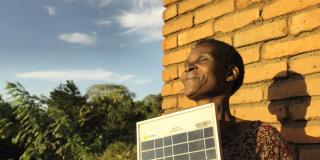
A single mother whose husband left her when their children were still young, Dines Msampha, 42, has seen her monthly income more than double since she was trained as a Solar Mama.
Not only does Dines receive a salary for her role maintaining the solar systems she's helped install in the community, but she's also boosted production for her donut-making business by being able to work outside of daylight hours – making a huge difference for herself and for her children.
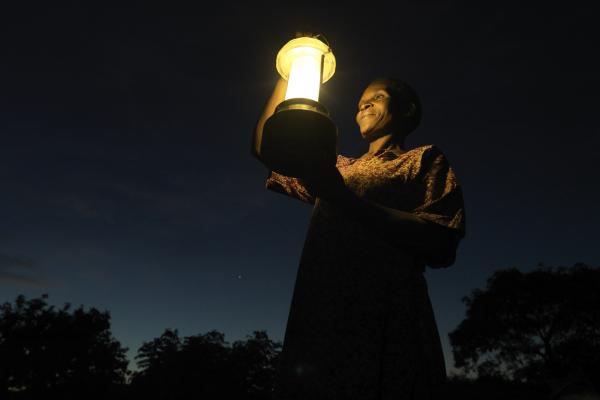
"I had never left Malawi before"
"People came and they wanted to select women to go for training. So, they called a meeting of the village and they came to select women.
“I had never left Malawi before. The furthest I had travelled before was about 190km from Lilongwe.
Becoming a female engineer
“Growing up I wanted to be a doctor, or an accountant, but we didn’t have the money for school fees. I was excited to do the course, because I had never seen women being solar engineers. I was excited to think that a woman like me could be an engineer. And when I got to India I was happy to see a lot of women in the offices and workplaces.
“When I got to India I was surprised to learn that we would be learning to build circuit boards and do the electrical wiring of the solar lamps ourselves by hand. I thought they would be assembled by machines.
“I learned how to build solar lanterns, and how to fix them. I learned how to maintain the home solar systems. If we have the parts, we can combine them together.
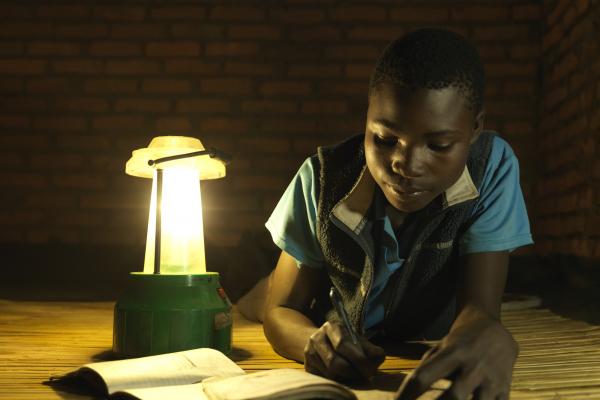
"I can do things on my own"
“When I returned to Malawi everyone was very happy. I don’t understand why other women were scared to do things like this. Now I know that I can do things on my own.
“My perspective changed a lot. My husband divorced me when my last-born was still a baby. I am paying secondary school fees for my two older children. I hope they will be able to finish school.
“Now that we have solar at home, I use the light to cook doughnuts and sweet potatoes in the evenings for sale at the market.
“Before, my profits from the business were about 5-7,000 a month. Now that’s about 12,000. In addition I have the Solar Mama salary which is 10,000 a month. It’s made a big difference."
I have worked hard and I am very proud of myself. I know I can do more.
Find out more about our work in:
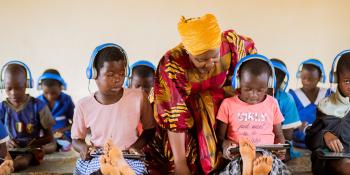
Malawi
We've worked in Malawi since 1958, building healthy communities, improving inclusive education, and supporting people to develop secure and resilient livelihoods
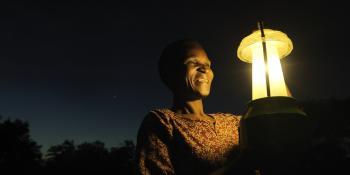
Empowering women and powering communities
The Solar Mama rural electrification project is simultaneously bringing electricity to rural communities, and empowering women in those communities through education and training.
